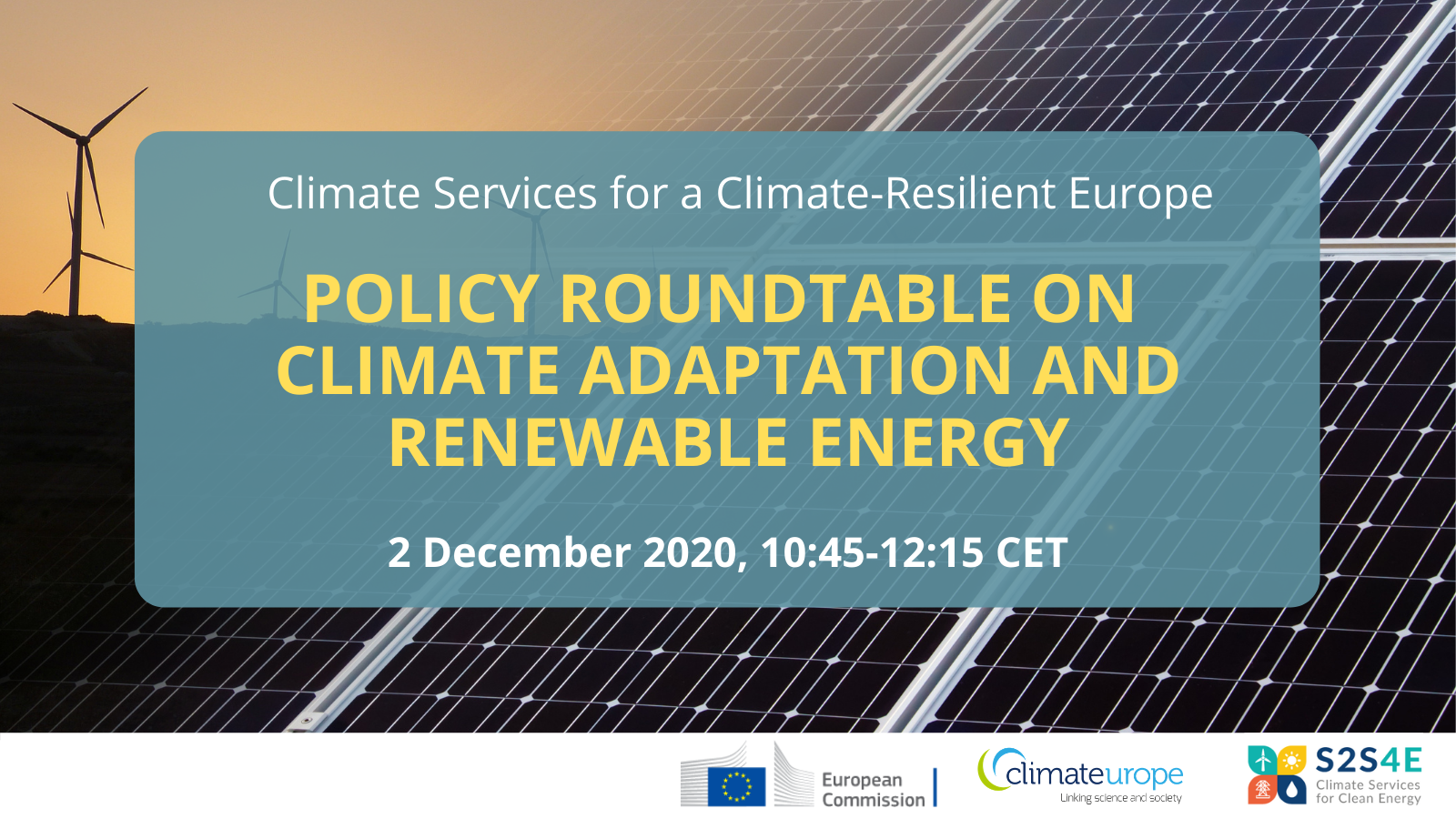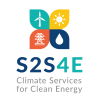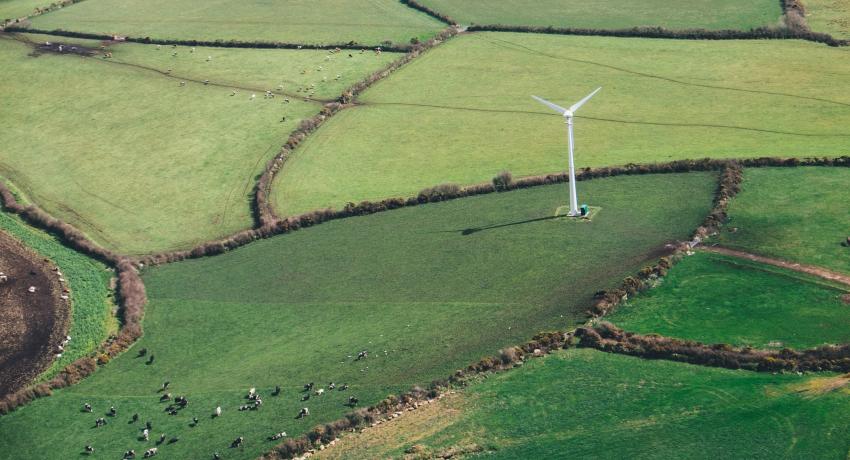On 2 and 4 December 2020, the S2S4E project held its two final events, aimed at policy and research audiences.
For the past 3 years, the S2S4E project has worked to research and develop climate services for the renewable energy sector. With the project concluding its activities at the end of 2020, two final events were held on 2 and 4 December, with a focus on policy and climate forecasting research, respectively.
Due to the COVID-19 pandemic and travel restrictions across Europe, the events were held online, receiving a large number of participants from all over the world.
Policy roundtable on climate adaptation and renewable energy
On 2 December, a policy roundtable was organised as part of the European Commission’s event on Climate Services for a Climate-Resilient Europe. At this event, H2020 projects presented their lessons learnt with the aim to showcase the added-value and potential of climate services in making Europe resilient to climate change.
The six policy recommendations presented in the S2S4E white report formed the basis for three panel discussions at the S2S4E-moderated session. Experts in the fields of climate science and policy, including project partners and representatives from organisations such as WMO and C3S, participated in the discussions.

During the first panel discussion, Francisco J. Doblas-Reyes, Director of Earth Sciences Department at the Barcelona Supercomputing Center (BSC), discussed the benefits in having both sub-/seasonal and decadal predictions on the Copernicus Climate Change Service (C3S) platform.
Chiara Cagnazzo from C3S proceeded to discuss the current services offered by C3S to energy sector users, while Roberta Boscolo from the World Meteorological Organization discussed the role of the organisation in implementing global climate services for the energy sector by scaling up services that are developed in Europe through C3S, H2020 and other programmes/initiatives.
Finally, Doblas-Reyes pointed out that seamless access to future climate information is a request by many users, and discussed the scientific challenges in the development of seamless predictions.
The second discussion, with panellists Matteo De Felice (JRC), Beatriz Sinobas (DG ENERGY) and Sofia Simoes (LNEG/Clim2Power), touched on the applications of climate forecasts in risk management.
The climate-related risks for renewable energy sources and the relevance of seasonal climate forecasts in risk preparedness were discussed. The challenge of bringing together the climate and energy modelling communities was highlighted, while the panel addressed how the Green Deal and the Recovery Fund will affect the renewables sector.
Finally, at the last panel discussion, Hannah Bloomfield (University of Reading) explained that the key aspect when engaging energy users is uncertainty, although further research is required on the skill of sub-seasonal to seasonal forecasts.
Representing the energy sector, the S2S4E industrial partners Ignacio Lainez (EDPR), Michael Christoph (EnBW) and Hiba Omrani (EDF) highlighted that the Decision Support Tool developed by S2S4E provides useful information for energy users, and a clear explanation of skill and predictability. However, Lainez pointed out that more work is needed to meet the expectations of end users when it comes to interpreting the uncertainty of extreme events.
Finally, the need to better understand decision-making processes and provide services tailored for individual users was emphasized by Jana Sillman (CICERO), researcher and partner of the S2S4E project.
Climate forecasting for energy
On 4 December, a free one-day workshop was held on 4 December 2020 with the aim to bring together the climate science and energy modelling communities. This was organised in collaboration with the Open Energy Modelling initiative (openmod).
The event was attended by a wide range of professionals and sectors, including academia, research, the energy sector (e.g. energy managers and analysts), engineering, climate science, meteorology and modelling (energy and climate). Attendees from over 50 countries all over the world participated in the workshop.
At the morning session, S2S4E partners discussed the science behind climate forecasting, its application in decision-making and research advances in the sector. In addition, the project coordinator Albert Soret (BSC) provided an overview of the S2S4E project and the climate services developed specifically for the energy sector. A panel discussion chaired by Jana Sillmann and Erlend Hermansen (CICERO) touched on supporting the use of climate forecasts in energy.
The afternoon session involved talks on the practical use of climate data for energy, a series of lightening talks on current research in energy modelling, and a final panel discussion.
Furthermore, participants were invited to present their research on the use of climate information in energy-system applications and models at a poster session. The posters were available throughout most of the day through the personalised chatroom, spatial.chat, which allowed participants to network and have informal discussions.

Platform (spatial.chat) used for poster session and networking during the workshop.
Written by Andria Nicodemou (BSC)


